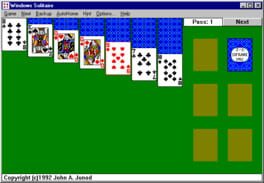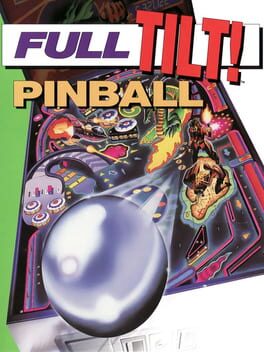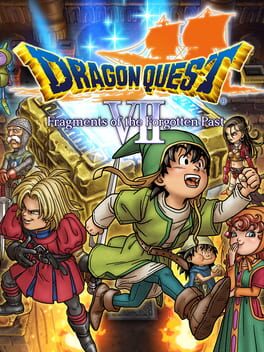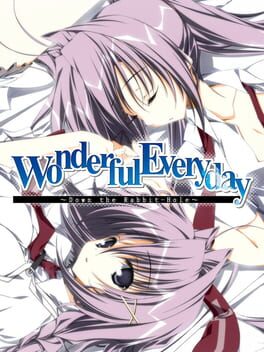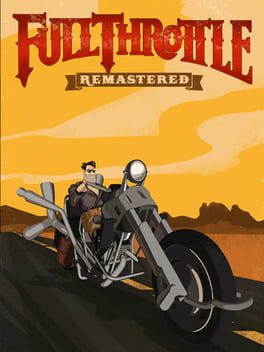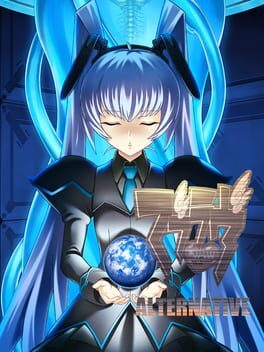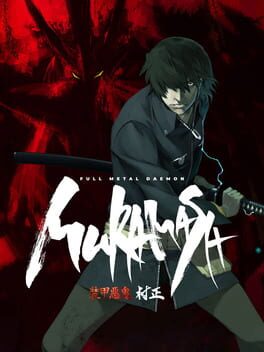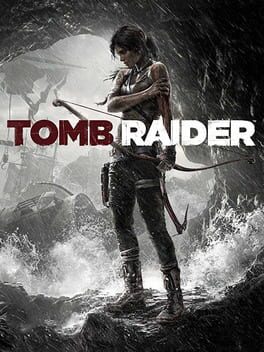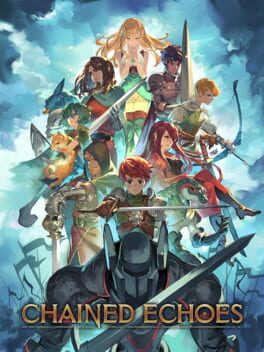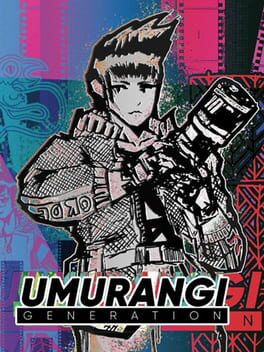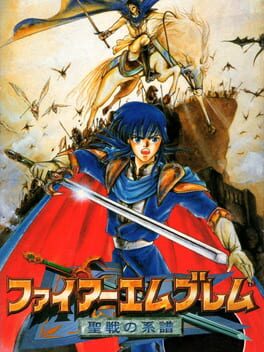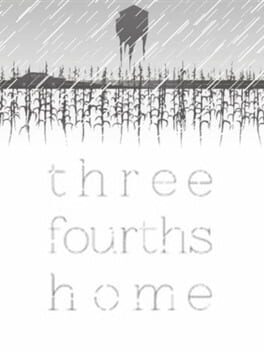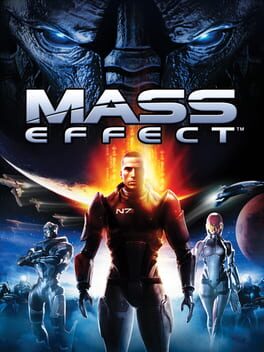mintcake
1990
Played it again recently to see what I've missed. Yep, still brainless as ever. Since it's hard to play a second round without getting bored, this is not a very good time waster. It is, however, the easiest of the bunch that packaged with Windows, and therefore probably the most played. Nostalgia is strong with this one.
1995
It was a sad thing when the writer decided at the end of chapter three that he had f*cked around for long enough and needed to actually tell a story and make sense of everything. He really didn't have to do that. I was happy to just let the protagonist take me to wherever his volatile mind goes. Instead, I got some plot, and it wasn't too impressive. Behold! Another little sister in a Japanese visual novel!
This is the most "action-y" LucasArts adventure game I've played yet. While I understand the developers must have thought they did everything they could with just pointing and clicking and wanted to try something new, the experiment did not quite work for me. I'd take a duel of insult over a bike battle or bumping car minigame with awkward control. The protagonist has the "he moves slow only because he doesn't to move for anybody" energy, which is pretty badass, and also stretches the game's not so impressive run time. I'm usually not one to complain about games being too short, but Full Throttle can definitely use some more dialogue, especially with the excellent voice acting.
2015
My first Souls game, and a wild ride I will never forget. I died so many times to the mob at Yharnam town square my weapons broke. Having not unlocked weapon repair, I had to start a new save. Somehow, I never thought of quitting. The 1% of Yharnam I saw already won me over. At some point, the game suddenly clicked with me, and it was relatively smooth sailing from then on. I felt I entered a whole new level of badassness when I got Blade of Mercy, only to be humbled by the DLC bosses. Orphan of Kos, or some say Kosm, shattered my soul into pieces.
2006
This ponderous giant of a visual novel crumbled down like a sack of potato in the end. One has to wonder, would the ending have been more impactful had the writer put more emphasis on character development instead of repetitive action and mind-numbing exposition? My favorite part of the game was when the protagonists of Kimi ga Nozomu Eien (the three girls on the left in the banner image) showed up. Knowing their history, what happened to them left me a much stronger impression than the fate of the characters in this series.
I've seen people compare it to, and I shit you not, The Brothers Karamazov. They should be exiled straight to Siberia for literature blasphemy.
The main parallel they drew is how this game supposedly allows different moralities to present themselves in equal footing. First of all, the game has one true ending. You know how visual novels work. Among the multiple endings, there is always one that is at the end of the longest, hardest route, and you end up with the most important girl. This game makes it more obvious, with all the other endings being some sort of refute to their own themes, so that you can clearly tell where the writer's heart truly lies. But the real problem is not how even-handed the writer is, but how compelling he presents his final argument. Without going into spoiler, the short answer is logic fallacy. When the game needed cool analysis and rational thinking the most to justify its morality, the writer resorted to appealing to the reader's emotion instead of reason, and in my case, fell flat completely. What is this novel take on morality that the game subjected me 50 hours of pain to get through? It's neither novel nor moral, an excuse used by perpetrators throughout history after committing atrocity.
And then there's the writing. The writer is clearly a kendo fan, if not a kendo course salesman, but that doesn't excuse him for shoving wall of text of kendo tutorial down people's throat. Exciting combat scenarios are grind to a halt by monotone exposition. The only thing more boring than action scenes are the comedy scenes. After all the philosophizing about the morality of man, garbage anime tropes are here to cleanse the palette and remind you nothing here is worth putting too much thoughts into. And how can I forget the sex scenes? They are fascinating in a Titus Andronicus sort of way. Who am I kidding? This is NitroPlus we are talking about. With the writer's fetish on display, I could see his hard on through the screen.
One point for the sudoku puzzle that came out of nowhere.
The main parallel they drew is how this game supposedly allows different moralities to present themselves in equal footing. First of all, the game has one true ending. You know how visual novels work. Among the multiple endings, there is always one that is at the end of the longest, hardest route, and you end up with the most important girl. This game makes it more obvious, with all the other endings being some sort of refute to their own themes, so that you can clearly tell where the writer's heart truly lies. But the real problem is not how even-handed the writer is, but how compelling he presents his final argument. Without going into spoiler, the short answer is logic fallacy. When the game needed cool analysis and rational thinking the most to justify its morality, the writer resorted to appealing to the reader's emotion instead of reason, and in my case, fell flat completely. What is this novel take on morality that the game subjected me 50 hours of pain to get through? It's neither novel nor moral, an excuse used by perpetrators throughout history after committing atrocity.
And then there's the writing. The writer is clearly a kendo fan, if not a kendo course salesman, but that doesn't excuse him for shoving wall of text of kendo tutorial down people's throat. Exciting combat scenarios are grind to a halt by monotone exposition. The only thing more boring than action scenes are the comedy scenes. After all the philosophizing about the morality of man, garbage anime tropes are here to cleanse the palette and remind you nothing here is worth putting too much thoughts into. And how can I forget the sex scenes? They are fascinating in a Titus Andronicus sort of way. Who am I kidding? This is NitroPlus we are talking about. With the writer's fetish on display, I could see his hard on through the screen.
One point for the sudoku puzzle that came out of nowhere.
2013
Obviously borrowed a lot of design from the Uncharted series, but this reboot gave something in return: the limited open area and RPG system added a new layer of exploration and survival element to the formula, which was later seen in The Lost Legacy and TLOU2. The emphasis is on "limited". It didn't try to be an open world collecthon with a thousand icons on the map, nor did it go full RPG with its crafting and leveling up. Such self-restraint is often missing in games from newer generation including its own sequels. It also didn't abandon its old trick of linear action sequence, something we see less and less due to criticism of not being "gamey" enough. As is shown here, the right amount of highly scripted sequences spice things up without making the players feel like they are on auto-pilot, especially when they are paired with other parts of the game that allow player freedom.
2019
A perfect game to chill and unwind. Great gameplay variety keeps the whole experience fresh. Slapstick comedy art style and animation alleviates the frustration of failure in surprising challenging levels. This game pays homage to various classic games by distilling their spirit into the most concise form, and imbuing them into the unique gameplay experience of its own without diluting its vision. The spitting level clearly inspired by LeChuck's Revenge? Pure bliss.
2022
Too many indie JRPG go for the shorter route while conveniently styling themselves as "Chrono Trigger inspired". This one says "fuck it, I'm going the full nine yards." It's the complete classic 16 bit JRPG package, with proper side quests and post game content and everything. The story is a hodgepodge of JRPG, manga and anime influence cramped into something engaging to the end, with certain events feeling a bit too familiar. Funny enough, another standout indie game from Germany in 2022: Signalis, gives the exact same impression story wise. Gameplay design is an absolute standout. With no random encounter and trash mob, the enemy variety is astounding, and each encounter is a puzzle to be solved. Just when I thought there's nothing more to be done about turn-based JRPG combat, this game came alone and proved me wrong. Writing and translation can be iffy at times, which some might say is a long standing feature of JRPG. I'm sure the writer has good intentions, but illogical world building such as "constant war makes the continent fall behind in technology" only serves to muddle the message.
2020
I couldn't play the game for more than thirty minutes due to severe headache it induced. Near the end of the game, I finally realized I was supposed to repeatedly smash the jump button to jump higher. As you can imagine, my experience with the game was quite miserable. But there's something evocative about preserving the last generation of human on film. I've seen people say how angry this game is, but that's not the impression I got. Sure the graffiti paints a picture of confusion and desperation. But that's not what we are filming. Ours is the last stage of grief. Under the bleeding sky, people seem to be taking the looming doom quite well, either due to numbness or dignity, or maybe the facts that our friends are with us.
The only Fire Emblem game where I remember every character's name. Sure they don't have a million lines of support dialogue to specify their favorite food, but what short dialogue there is always captures the essence of them, a videogame writing skill sadly lost after 16 bit generation. The marriage system is first introduced here, but it doesn't indulge in dating sim. What make the characters truly memorable, however, is their role in the main story. They are tied to the main story through their lineage, and what happened in the story impacts them all. And what a story it is. It exudes grand and epic, matching the glorious title in every way. Fire Emblem story has never reached the same height ever since.
Gameplay wise, this is the only Fire Emblem game that makes you the head of an army instead of the commander of a battalion. And yes, that means you will be maneuvering your troops a lot. You can play like a battalion commander and throw all the units at one objective, or you can make strategic decision, choose advantageous position for engagement, and split your army if necessary. It also introduced a more intricate economy system where each unit has own fund and weapons can be repaired. Gone are the days when everyone wields silver weapons. Who to equip which weapon and when to use it become a gameplay decision.
If there is to be remake, a few improvements can be made:
1. Introduce rescue system from Thracia 776, which increase availability of on-foot units in battle.
2. Add indoor battle where like Thracia 776, mounted units need to dismount and receive stats debuff, which further helps on-foot units.
3. More world building and story. In the first half of the game, Sigurd's war is a secondary theater to a bigger war happening in the side of the world. It is ultimately what happens in and after the other war that seals the fate of the characters. So it can be more flashed out. The second half of the game can hint at the event of Thracia 776, which not only enriches the game itself, but also paves the way to future remake.
Gameplay wise, this is the only Fire Emblem game that makes you the head of an army instead of the commander of a battalion. And yes, that means you will be maneuvering your troops a lot. You can play like a battalion commander and throw all the units at one objective, or you can make strategic decision, choose advantageous position for engagement, and split your army if necessary. It also introduced a more intricate economy system where each unit has own fund and weapons can be repaired. Gone are the days when everyone wields silver weapons. Who to equip which weapon and when to use it become a gameplay decision.
If there is to be remake, a few improvements can be made:
1. Introduce rescue system from Thracia 776, which increase availability of on-foot units in battle.
2. Add indoor battle where like Thracia 776, mounted units need to dismount and receive stats debuff, which further helps on-foot units.
3. More world building and story. In the first half of the game, Sigurd's war is a secondary theater to a bigger war happening in the side of the world. It is ultimately what happens in and after the other war that seals the fate of the characters. So it can be more flashed out. The second half of the game can hint at the event of Thracia 776, which not only enriches the game itself, but also paves the way to future remake.
2015
2007
Fantastic introduction to a new galaxy and lays the groundwork for an epic journey. World building is meticulous, yet not intrusive. The magnitude of choices and consequences immerse players into a web of causality. Sharp writing carries the story throughout. Sheperd is not afraid to throw a couple of zingers once in a while, or punches for that matter. The renegade options provide a true anti-hero experience that is just as viable as the model soldier route. The end justifies the means, but at least it is a noble end. I do wish he doesn't run like he smokes five packs of cigarette every day though.
On the flip side, side quests are not memorable aside from a handful of more flesh-out ones. Teammates, aside from a few story moments, don't get to shine and fully become their own characters with Wrex being a notable exception who won my heart early on.
Gameplay is not archaic as some might let you think, with Mako driving being the obvious weak link. Headshoting flashlight head never gets old, and seeing enemies struggling in the air is always hilarious.
On the flip side, side quests are not memorable aside from a handful of more flesh-out ones. Teammates, aside from a few story moments, don't get to shine and fully become their own characters with Wrex being a notable exception who won my heart early on.
Gameplay is not archaic as some might let you think, with Mako driving being the obvious weak link. Headshoting flashlight head never gets old, and seeing enemies struggling in the air is always hilarious.
